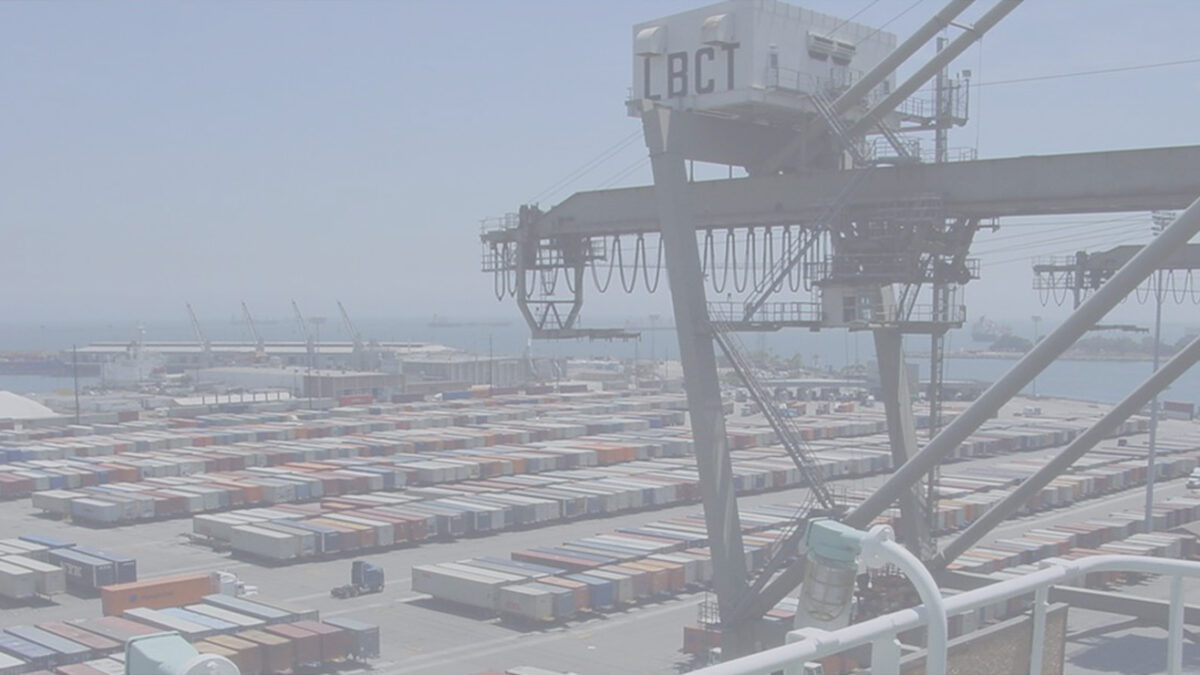
FTZ’ine July 2020
July 1, 2020
FTZ’ine September 2020
September 1, 2020Election Talk Heats Up
As Tropical Storm Isaias is bearing down on your Nation’s Capital today, talk of the November election has taken a slight pause. As soon as the winds outside the Capitol stop blowing though, expect the wind inside the Capitol to gust anew focused on how the election might take place in the face of the COVID-19 pandemic, and what type of economic aid the country needs next. There is currently a $2 trillion (yes, with a “t”) gap in the stimulus plans proposed by each side of the isle, and similar gaps in the accommodations for voting by mail to reduce opportunities for virus transmission in November.
Rumblings of an ‘October Surprise’ in the form of a working vaccine continue to circulate. U.S. European, and Chinese pharmaceutical companies have begun to produce vaccines in massive quantities even as trials continue as to their effectiveness. Hope of a vaccine or treatment has buoyed stock markets despite historic retraction in the brick and mortar economy. As tech giants reported record earnings last week, major retailers continued to file for bankruptcy. Stay tuned for all the news impacting FTZs and international trade.

Top Story: CBP Cracks The Door Open On U.S. 321 Entries
In a surprise ruling issued on July 28th to James Swanson, Director, Cargo Security and Controls , U.S. Customs Headquarters opened the possibility that merchandise could be brought into a U.S. warehouse for distribution using Section 321 de minimus entry procedures. While they will still not allow so-called 321 entries of foreign-status merchandise from foreign-trade zones, it does open the door that U.S. distribution facilities could take advantage of duty-free entry previously only available from foreign warehouses. Therefore FTZ distribution facilities could make use of the ruling to admit duty-free merchandise in domestic status.
Headquarters ruling HQ H290219 comes almost three years after a ruling request on behalf of Amazon. The ruling specifically allows the foreign shipper to act as the party for whom the $800 per day limit for such duty-free entries apply. This means the de minimus provision is still far more workable from a foreign location, but there are conditions under which informal, duty free entry could be made into a U.S. distribution center.
In other words, the ruling states that a 321 entry can be used at the time of import even if a sale has not taken place. However, when the final purchaser is not known, the consignee of the shipment must be used as the importer for the purposes of determining the $800/day limit. This limits the benefits of the ruling, but the smaller the foreign shipper’s organization, the more useful the provision becomes. The ruling also addressed the data requirements for such an informal entry into a U.S. warehouse. 19 C.F.R. § 143.23(k) provides that the following information is required as a part of an informal entry:
Earlier CBP rulings held that the ultimate consignee cannot be a foreign entity, rather a domestic ultimate consignee must be listed with every de minimis informal entry submitted. When a sale has not yet taken place in the U.S., i.e. there is no actual ultimate consignee, the owner of the U.S. premises of delivery at the time of entry of the unsold merchandise may be listed as the ultimate consignee. In situations where additional owner or purchaser information is not provided to CBP, the ultimate consignee, would be the entity used to determine the one person on one day Section 321 de minimis value qualifier.
Based on the ruling a foreign owner of the shipment or shipments may be identified as the one person on one day under 19 U.S.C. § 1321(a)(2)(C). If such an owner or purchaser is not identified, however, CBP shall use the named consignee to determine whether shipments are made in excess of $800 per person on one day.
The ruling noted that formal entries are required for all antidumping and countervailing duty entries. That same rule would not apply to entries subject to Section 301 or 232 duties.
Tech Tip
CBP has been working on updates to the broker regulations for quite a while. As a zone operator, at least one of these changes may impact you, especially if you self-file.
The regulation modernization is intended to coincide with the development of CBP trade initiatives including, the Automated Commercial Environment (ACE) and the Centers of Excellence and Expertise (CEEs). There are several updates including documenting a requirement that customs business must be conducted within the customs territory of the United States. This is CBP's current practice, and the broker community and CBP have agreed that this requirement should be set forth in the regulations. The proposal also requires each broker to maintain a current point of contact for issues related to the transaction of customs business. This contact will be called upon should recordkeeping need to be produced, and must make requested records available at a location specified by CBP employees within thirty (30) calendar days. This change would allow CBP greater flexibility in where it could examine the records.
Comments on these changes are due by August 4, and the proposed rules can be found at https://www.federalregister.gov/documents/2020/06/05/2020-04711/modernization-of-the-customs-brokers-regulations. If you have questions on the new rules, please send them to us at Info@iscm.co.


U.S. Economy on Two Widely Divergent Paths For FTZs
Expected UK FTA Fails To Coalesce


PANY/NJ Results Confirm Pandemic Impact To Ports
FTZ Board Activity
- Puma Energy Caribe, LLC received approval for the expansion of subzone 7F in Carolina, Puerto Rico. MORE
- LLFlex, LLC received authorization of production activity for aluminum foil paper laminate, foil-backed paperboard, coated paper, coated paperboard, and cable wrap within FTZ 230 in High Point, North Carolina. MORE
- Offshore Energy Services, Inc. received authorization of production activity for line pipe with weld-on housings and connectors within FTZ 124 in Broussard, Louisiana. MORE
- PRO-PIPE USA, LLC received authorization of production activity for high-density polyethylene pipe within FTZ 106 in Shawnee, Oklahoma. MORE
- Barco Stamping Co., Inc. submitted a notification of proposed production activity for stamped lighting fixture components within FTZ 219 in Yuma, Arizona. MORE
- Zoetis, LLC received authorization of production activity for pharmaceutical products within FTZ 43 in Kalamazoo, Michigan. MORE
- Traxys Cometals USA, LLC received authorization of production activity for manganese and aluminum alloying agents within FTZ 158 in Burnsville, Mississippi. MORE
- ISK Biosciences Corporation received authorization of production activity for agricultural chemicals within FTZ 77 in Memphis, Tennessee. MORE
- Ricoh Electronics, Inc. submitted a notification of proposed production activity for toner products, thermal paper, and film within FTZ 26 in Lawrenceville and Buford, Georgia. MORE
- New London Foreign Trade Zone Commission submitted an application for the reorganization of FTZ 208 under the alternative site framework in New London, Connecticut. MORE
- HP International Trading B.V. LLC submitted a notification of proposed production activity for Inkjet Ink and 3D printing fluids (bulk and cartridges) and related subassemblies within FTZ 61 in Aguadilla, Puerto Rico. MORE
- LiCAP Technologies received approval for subzone status for its new facility as subzone 143E in Sacramento, California. MORE
- Plaza Warehousing & Realty Corporation submitted an application for the expansion of subzone 61T of FTZ 61 in Caguas, Puerto Rico. MORE

Election Talk Heats Up –
As Tropical Storm Isaias is bearing down on your Nation’s Capital today, talk of the November election has taken a slight pause. As soon as the winds outside the Capitol stop blowing though, expect the wind inside the Capitol to gust anew focused on how the election might take place in the face of the COVID-19 pandemic, and what type of economic aid the country needs next. There is currently a $2 trillion (yes, with a “t”) gap in the stimulus plans proposed by each side of the isle, and similar gaps in the accommodations for voting by mail to reduce opportunities for virus transmission in November.
Rumblings of an ‘October Surprise’ in the form of a working vaccine continue to circulate. U.S. European, and Chinese pharmaceutical companies have begun to produce vaccines in massive quantities even as trials continue as to their effectiveness. Hope of a vaccine or treatment has buoyed stock markets despite historic retraction in the brick and mortar economy. As tech giants reported record earnings last week, major retailers continued to file for bankruptcy. Stay tuned for all the news impacting FTZs and international trade.

